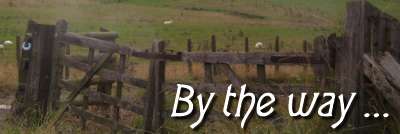|

17. BRITISH MELODIES
with RICHARD GRAVES
Just as a melody like O Tannenbaum has (despite its 'Red Flag'
associations) something characteristically Teutonic about it, so some of
the finest British tunes have a peculiar national quality of their own.
I am thinking among others of Parry's Jerusalem and the I Vow
to Thee, My Country theme from Holst's The Planets. Needless
to say, Vaughan Williams was also a past master at this sort of thing. His
early Linden Lea, often mistakenly thought of as a folk-song, is
a prime example. The second subject of The Wasps Overture is another
case in point. As several observers have noted before, the shared common
characteristics of all these popular melodies are two-fold - 1) they are
all in triple time and 2) Nearly every bar consists of four notes. It is
indeed these features that provide a certain touch of national identity
(but why that should be, goodness only knows).
There are other contenders, I am sure, though I can't think of any from
composed music of earlier times. The first example that I could come up
with is from the world of folk-music. Remind yourself of the best-known
tune to Barbara Allen - the one we older folk learned at school and
used to set rude words to. However, if you can think of others, it would
be nice to hear from you, so do please
let us know.
But what about non-British melodies which have similar characteristics?
Any offers? Are there any? The nearest I can get is the big, sweeping tune
from the Interrupted Intermezzo from Bartók's Concerto for
Orchestra. Yes, I know that it is not strictly in triple time as the key
signature changes sometimes from bar to bar. Yet if you sing the melody,
the general effect is undeniably three-in-a-bar, the irregular rhythm being
little more than the composer measuring the breathing places. And
the other requirement is fulfilled as there are virtually always four notes
per bar. In my occasional saner moments I am prepared to concede that this
touch of Bartókian quasi-Britishry is purely fortuitous. On the other
hand, remember that it is in this same movement that Bartók cocks
a merciless snook at poor old Shostakovich. Is it too far-fetched to think
that B.B. also may have been having a genial go at the whole R.V.W. contingent?
Yes, probably it is.
But I wonder ...
Copyright © 22 June 2000 Richard Graves,
Weston-super-Mare, Somerset, UK
 << Music &
Vision homepage Happy Christmas! >>
<< Music &
Vision homepage Happy Christmas! >>
|